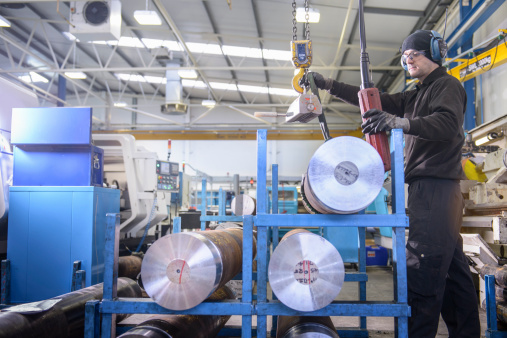
Like all industries, manufacturing is currently impacted by the global pandemic and recovery. But it’s also in the midst of a long-term shift. The past several decades have seen dramatic changes in the manufacturing workplace. It’s gone from a hands-on, worker-intensive enterprise with mostly unskilled workers to a high-tech workplace in which automation drives many routine tasks.
Quick facts to know:
- Over 12.5 million people are employed in the manufacturing industry, while millions of jobs in other industries are reliant on manufactured products.
- Manufacturers operate in every state, but are particularly important for Midwest and South regional economies, where manufacturing may account for 10 percent or more of all jobs.
- Job candidates with a high school diploma and short-term technical training are in great demand in manufacturing, and are likely to earn higher than average wages compared to workers in other industries with similar education levels.
- The use of artificial intelligence and automation in manufacturing continues to grow, requiring a workforce with technical skills to match.
The long-term shifts in the manufacturing industry mean that employers now require a skilled, trained workforce able to learn new technology on the job, and quickly adapt from one project to the next. Jobs in manufacturing are expected to see a slight decline over the next ten years due to automation and industry changes, but demand for workers will still be high as existing workers retire out of the labor force. In addition, high growth is expected in specialized manufacturing positions such as CNC machine tool programmers, industrial engineers, dental laboratory technicians, and medical appliance technicians.
Unlike in many industries, new hires in manufacturing are commonly expected to learn the work on the job. Therefore, many occupations have minimal education requirements—typically a high school diploma or less—and new hires can also earn a technical certificate on the job. Examples of these types of careers include welders, packaging and filling machine operators, painting workers, lathe and turning machine tool setters, slaughterers and meat packers, and food cooking machine operators.
An associate’s degree or certificate can open the door to a manufacturing career in a variety of fields, including CNC machine tool operators, machinists, dental laboratory technicians, boiler operators, or medical appliance technicians.
Apprenticeships are common in the manufacturing industry and offer wages while learning a skilled trade. Some of the occupations that may be entered through apprenticeship include CNC programmers, precision machinists, industrial maintenance repairers, mold makers, and tool and die makers.
Manufacturing careers that require a four-year degree offer more management and design tasks; these include industrial production managers and industrial engineers.
Who is a career in the manufacturing industry right for? There are several points to keep in mind:
- Round-the-clock shifts are common—and first shift positions are usually harder to find than night shifts or weekends. In addition, some employers may require mandatory overtime to meet production demand.
- Working conditions may include loud noise, heat or cold, and standing for long periods of time.
- Candidates who enjoy tinkering with hand or machine tools, and are curious about mechanical systems have an advantage and are especially sought after in this industry.
- Because of worker shortages, manufacturers may have to compete for workers by offering increased wages, benefits, and flexibility in scheduling.
Watch a video about the manufacturing industry or learn about trends and careers in other industries and career clusters in CareerOneStop’s Video Library.
